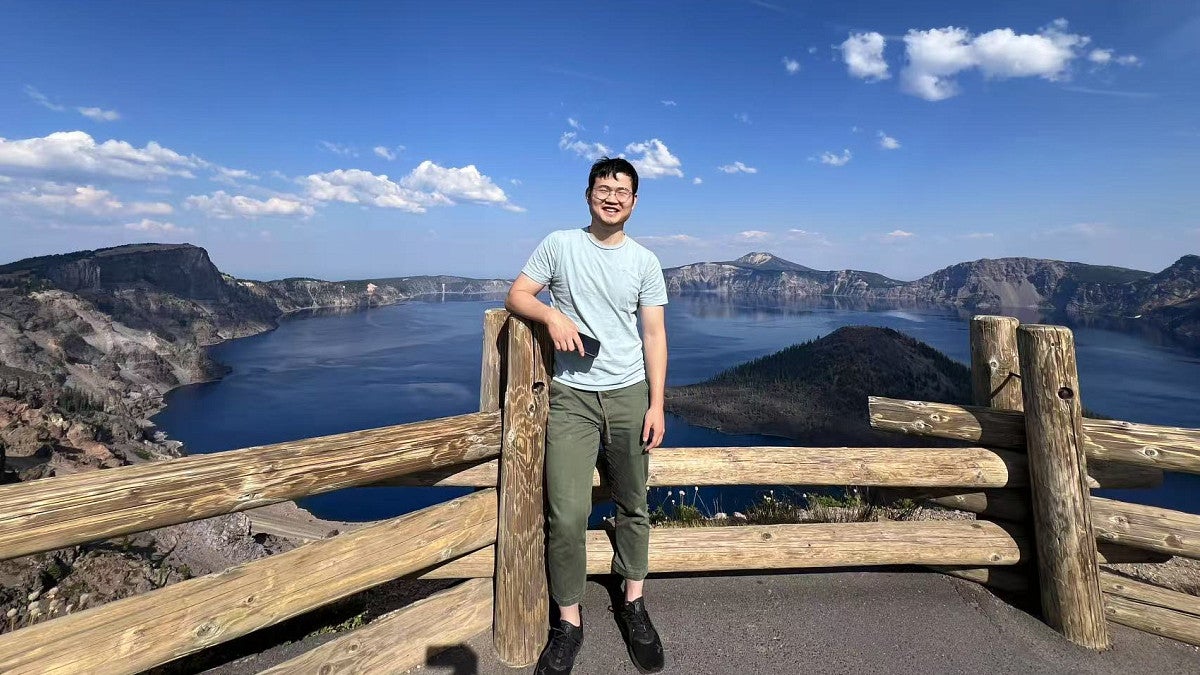
Nov. 18, 2025 - 5:00pm
The systems responsible for navigating massive data sets, such as those generated by scientific experiments, healthcare procedures and social media, shape our experience with technology every day. While their work often operates in the background, it’s important to recognize the researchers who study these areas and whose work helps improve people’s lives in numerous fields.
One such researcher is College of Arts and Sciences computer science professor, Yu Wang, who has been awarded two major honors in the past few months.
First, a team he has been leading won a $200,000 grant from the National Science Foundation to support their research in massive data sets using graph retrieval techniques.
Second, his dissertation, which investigates ways to improve limited data sets to promote equity in data science, was awarded an honorable mention in the Best Dissertation Paper category by the Special Interest Group on Knowledge Discovery and Data Mining.
“I’m very excited to have the opportunity to investigate how we can leverage graph and network structured knowledge to help people accomplish real world tasks,” said Wang.
The NSF grant will mainly support Wang’s students at the UO who will help with the research throughout the coming year. This includes doctoral students who are conducting research tasks themselves and undergraduates who will help with data collection.
University of Oregon students and faculty may experience the effects of the project firsthand, even if they aren’t directly involved in it. The grant is in collaboration with industry partners like Adobe, who are incorporating Wang’s research into their platforms to allow users to do things like quickly find a specific piece of information in a document.
“In our daily life, we have many opportunities to deal with a lot of network structure data,” said Wang. “This grant proposal will help us leverage the relationship between different types of information to help people make better and quicker decisions.”
The award for the dissertation is also a major honor. SIGKDD is the top conference in Wang’s field, and the application process for papers to be featured, let alone honored, was competitive.
“It’s a cumulative kind of outcome. The dissertation encapsulates my five years of PhD study from 2019 to 2024, and the questions I started asking in it continue to guide my work today,” he said.
Amidst the accolades, Wang’s focus is on the future. With so many practical applications to his area of study, a goal of his going forward is to help apply his insights to a wide variety of different fields.
“I hope I can expand my collaboration with departments across campus. These information systems can handle all sorts of cross-disciplinary problems from healthcare, to cybersecurity, to the humanities,” said Wang. “I’m looking forward to applying this research to help solve more real-world problems.”
—By Evan Ney, College of Arts and Sciences
